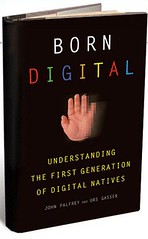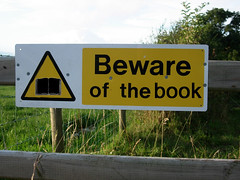 William Webb, Head of Research and Development at OFCOM, to speak about ‘The Theory, Practice, Politics and Problems of Spectrum Reform’ on November 12
William Webb, Head of Research and Development at OFCOM, to speak about ‘The Theory, Practice, Politics and Problems of Spectrum Reform’ on November 12
ARLINGTON, VA., October 23 – With the transition to digital television in the United States less than four months away, disputes about the airwaves used by broadcasters are raging here and around the globe. A world-class expert will soon weigh in on how one country, the United Kingdom, views the challenges of bringing radio spectrum allocation into the 21st Century.
On Wednesday, November 12, 2008, the Information Economy Project at the George Mason University School  of Law will host its next Big Ideas About Information Lecture, featuring an address by Dr. William Webb, a top policy maker at OFCOM, the U.K. telecommunications regulator.
of Law will host its next Big Ideas About Information Lecture, featuring an address by Dr. William Webb, a top policy maker at OFCOM, the U.K. telecommunications regulator.
OFCOM’s ambitious liberalization strategy, announced in 2004, permits the large majority of valuable frequencies to be used freely by competitive licensees, offering an exciting and informative experiment in public policy. Dr. Webb’s lecture, “The Theory, Practice, Politics and Problems of Spectrum Reform,” will offer a timely progress report for the American audience.
Webb’s lecture will be the sixth in a prestigious series that has included Nobel Laureate Vernon Smith and noted economist David Porter on how FCC license auctions have worked; Martin Cooper, the “father of the cellphone,” on spectrum allocation; Brian Lamb, founder and CEO of C-SPAN, on the policies that enabled the cable network to launch; former Federal Communications Commission Chairman Dennis Patrick, on the decision to abolish the “Fairness Doctrine” in 1987; and University of Minnesota Professor Andrew Odlyzko, on financial bubbles in high-technology industries.
Dr. Webb’s Lecture will review the century-long history of radio spectrum regulation. For almost all of that century, the policy-maker has micro-managed spectrum use, defining services, technologies and business models deployed by wireless operators. The inefficiencies embedded in this approach have triggered calls for liberalization since the pioneering work of economist Ronald Coase in the 1950s.
While efforts to relax administrative control have generally met great political resistance, some substantial progress has been made with the emergence of mobile telephone networks over the past two decades. Policy makers in some nations are now seeking to achieve bolder changes. The regulator in the United Kingdom, OFCOM, has emerged as a leader in this campaign.
After the Labour Government commissioned a landmark 2002 study authored by economist Martin Cave, OFCOM moved aggressively to assist the emergence of property rights in frequencies, the institutional switch enabling market allocation of radio spectrum.
This lecture, delivered by a key OFCOM policy official and a noted spectrum technology expert in his own right, dissects the liberalization process in Great Britain and offers lessons learned. This experience promises great insight for the U.S. and other countries struggling to enact pro-consumer policy reforms.
Continue reading →



 of Law will host its next Big Ideas About Information Lecture, featuring an address by Dr. William Webb, a top policy maker at OFCOM, the U.K. telecommunications regulator.
of Law will host its next Big Ideas About Information Lecture, featuring an address by Dr. William Webb, a top policy maker at OFCOM, the U.K. telecommunications regulator.


 The Technology Liberation Front is the tech policy blog dedicated to keeping politicians' hands off the 'net and everything else related to technology.
The Technology Liberation Front is the tech policy blog dedicated to keeping politicians' hands off the 'net and everything else related to technology.